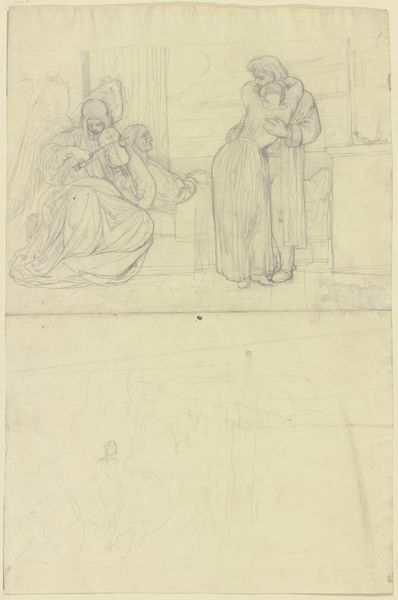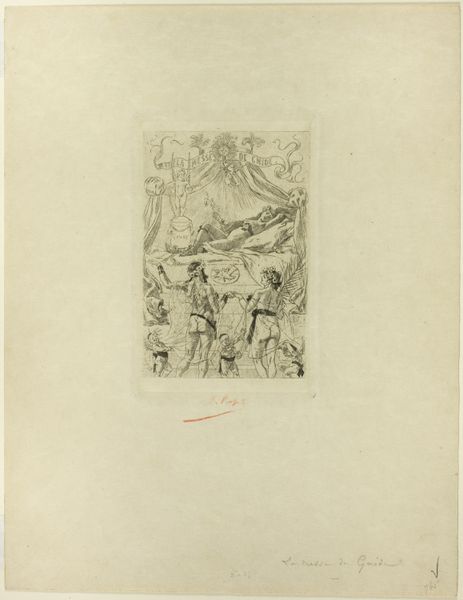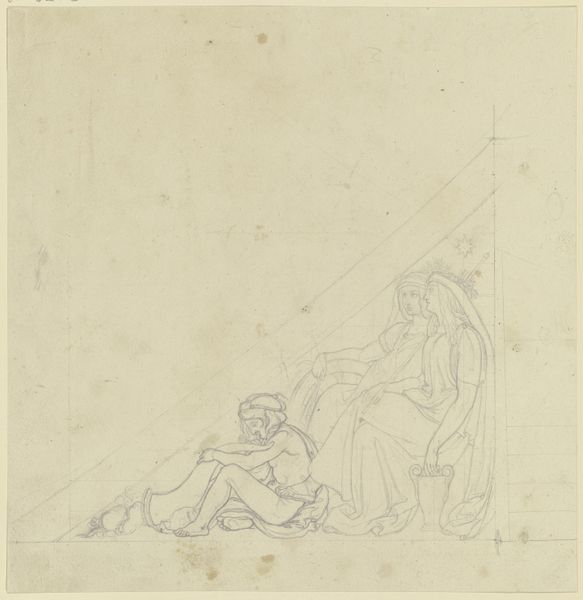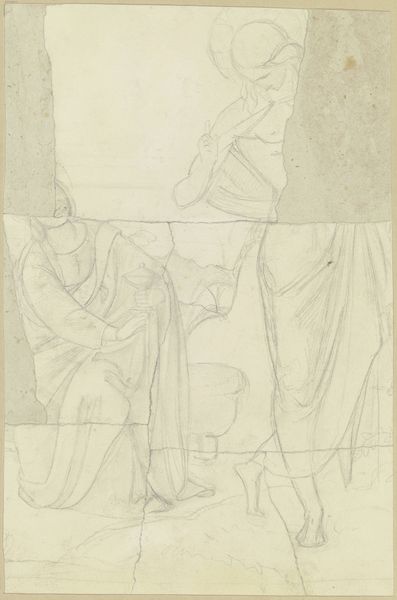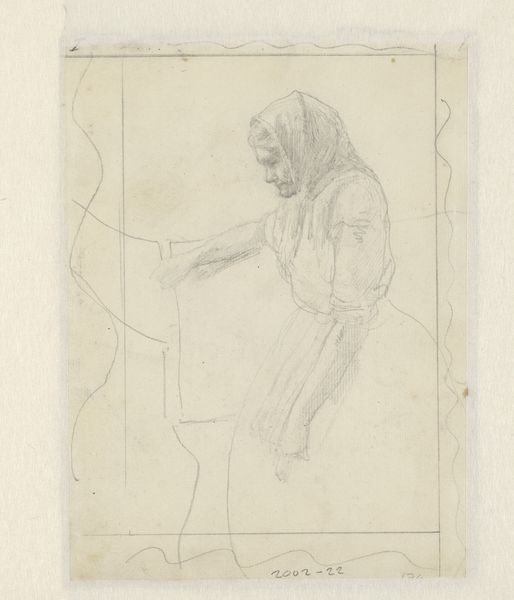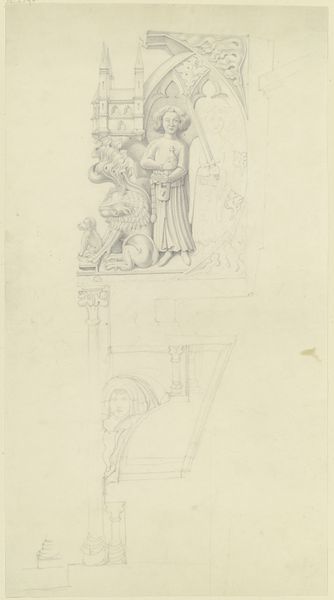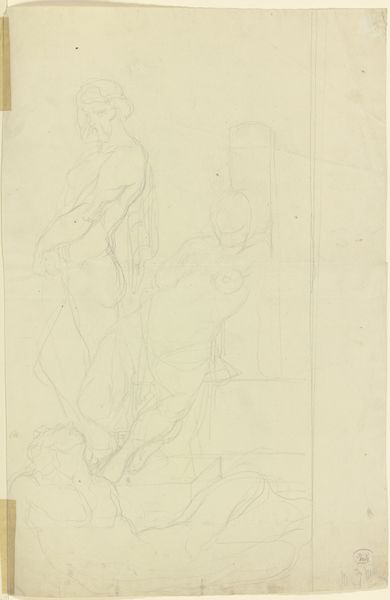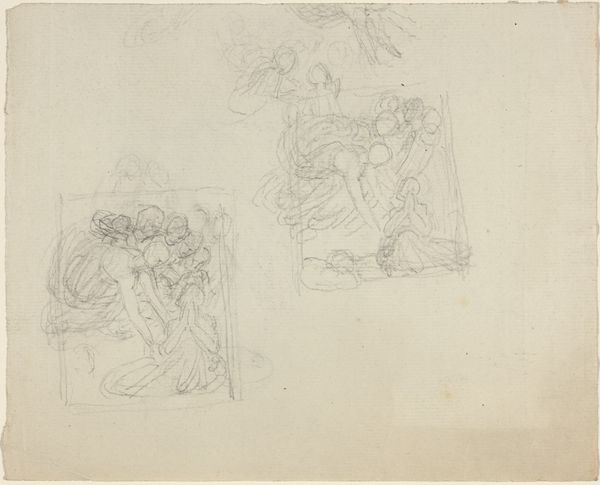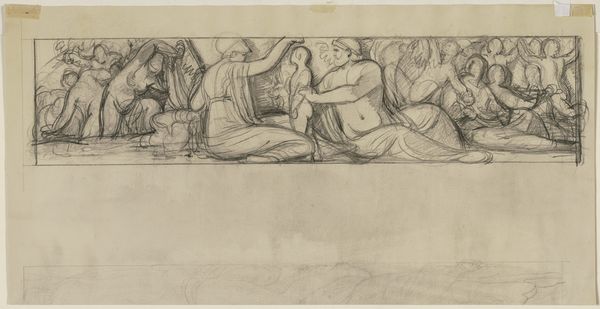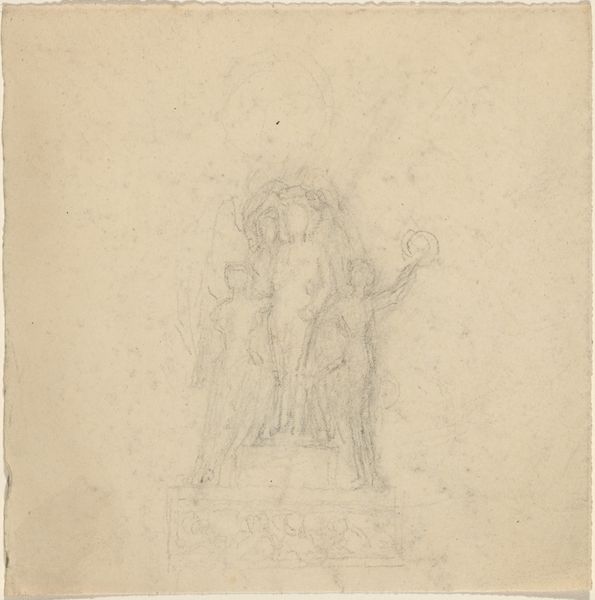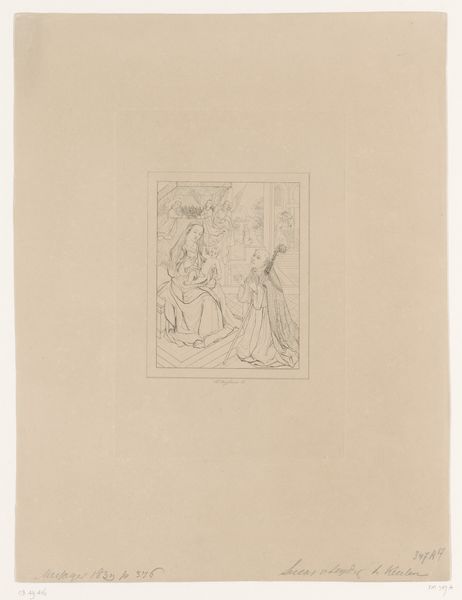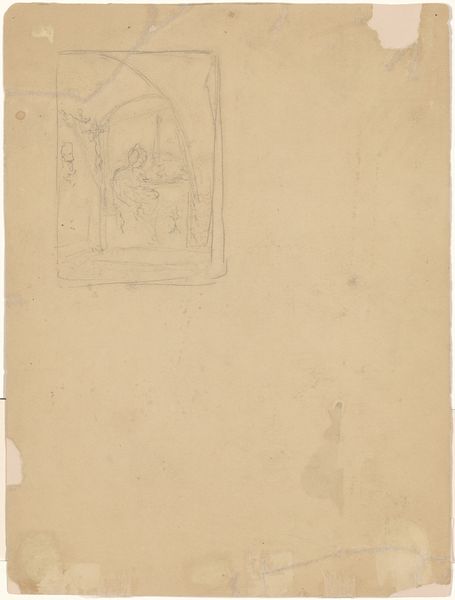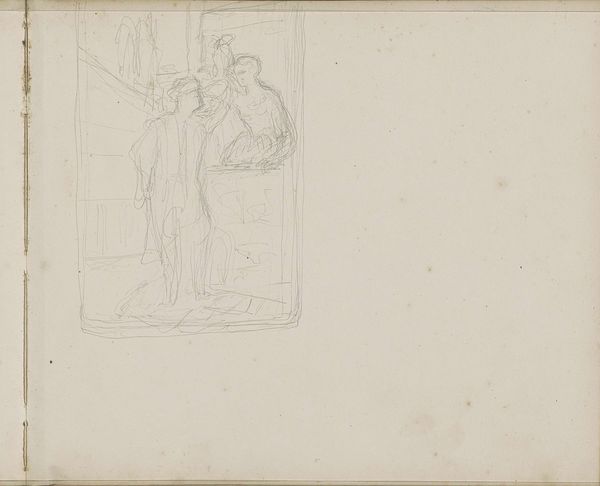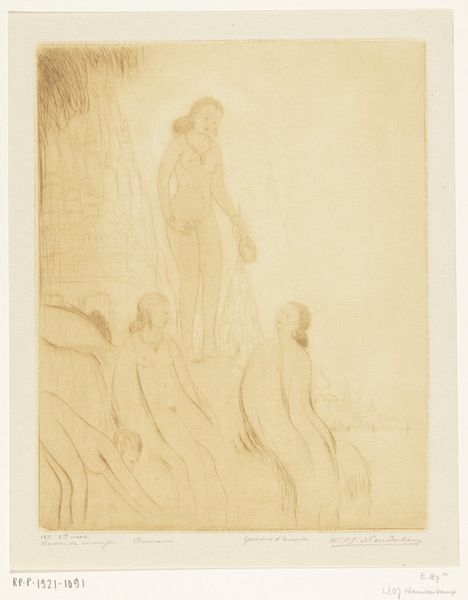
drawing, paper, pencil, graphite
#
drawing
#
figuration
#
paper
#
romanticism
#
pencil
#
line
#
graphite
#
history-painting
Copyright: Public Domain
This sketch of a scene from Goethe’s Iphigenie auf Tauris was made by Bernhard Neher the Younger, sometime in the 19th century, with graphite on paper. The artist's process is plain to see. He used a common material, graphite, to mark and define his composition on paper, using hatching to describe the forms of the characters, the textures of drapery, and a ritual altar. The loose, freehand quality suggests an exploratory approach. We sense the artist working towards a clearer image, a study in process. It's important to think of drawings like this one as vital to the wider production of art. Though we often prize the finished painting or sculpture, the labor of preparation is often where the real work takes place. Drawings like this can be revealing of an artist's choices, his or her habits of mind. They are also artifacts of skill: the ability to translate complex three-dimensional ideas into two dimensions with just a humble pencil.
Comments
No comments
Be the first to comment and join the conversation on the ultimate creative platform.
